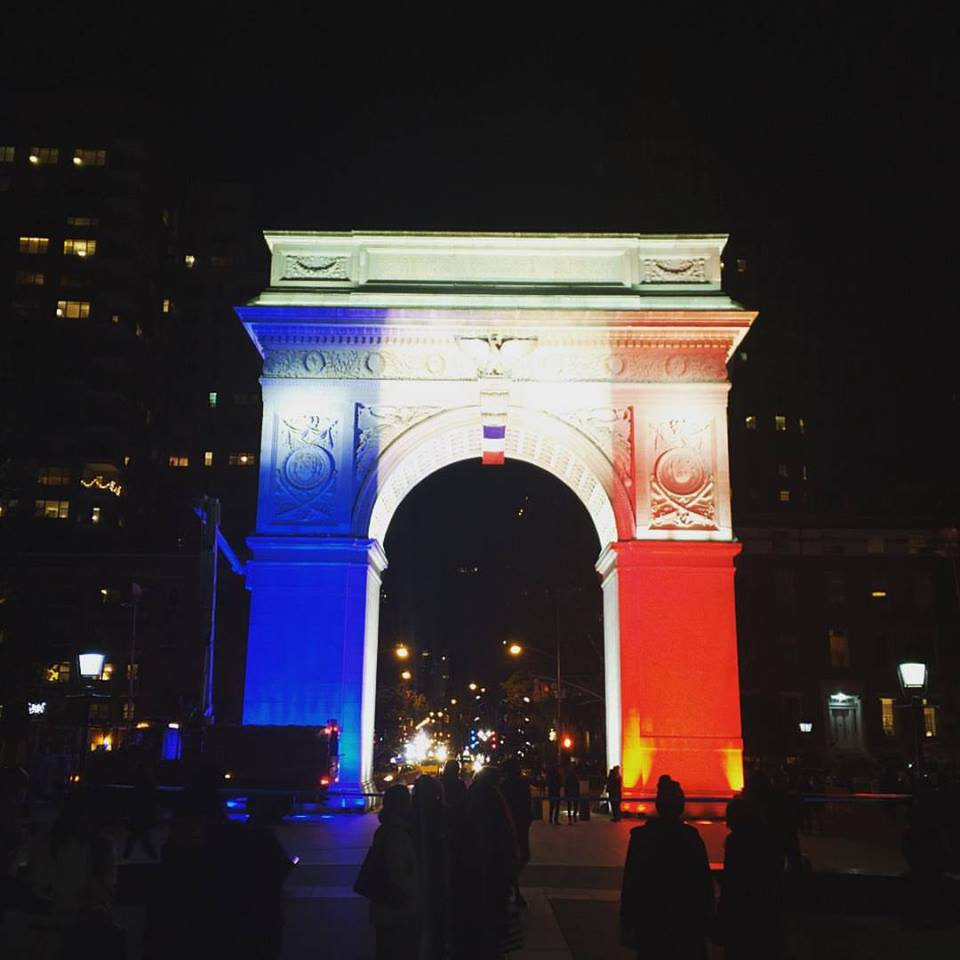From our Editors: thoughts about Paris from Audrey
Reflecting on six years of French class
Audrey Deng is the Copy Editor at West 10th and the Arts Editor at Washington Square News. She is a sophomore studying Comparative Literature and English. Talk to her about Frank Stella's retrospective at the Whitney, because she's excited about that.In my mind, Paris exists in textbook images from high school, a series of impressions divided by semester. In the fall, French class was a sanctuary; we would sip hot chocolate while thinking about what we should/could/would do in the languid conditionnel tense, snow piling outside of the window. We would read about (and later eat) delectable French holiday pastries like Bouche de Noël and fondant cake. In the spring, we flung open the windows and projected images of tulip-lined streets to "La Vie en Rose." Paris, just saying the word Paris, implied panache. I felt that simply by being in French class, we students sat straighter, spines strengthened by speaking the language of a country heralded for its elegance.
Last Friday, on November 13, I went to my French class where we learned about the subjunctive (il est important que nous brossons nos dents!). I cooked oatmeal, wrote birthday cards, and Paris erupted into frightened chaos. Guns had fired in the Bataclan concert hall of an Eagles of Death Metal concert, along with bombings throughout the city, killing at least 130 people.The hateful act of terrorism scorches a sad chapter in the world's history, but humans have been sad before. The sickening feeling comes from the fact that it is becoming frighteningly easy to measure the passing of time not by how light illuminates the earth, but by how shadows shroud the globe in darkness.I went to a peaceful gathering in Washington Square Park to pay tribute to France, eavesdropping on the sad conversations held through clouds of sad cigarette smoke. Everything seemed sad. People stood sadly, conversed sadly, smoked sadly. Never, in my life, have I heard a sad French conversation take place in real life until that Friday. "Do you know anyone injured or dead?" one would ask another. "No, all safe, thank God. You?" So it went--and it was jarring.Understanding sadness in another language permanently changes the way one listens and reads and thinks, vous comprenez? It sharpens the vision, tightens the eardrums. Once you have heard those words of death and injury, the language and your history with it, changes. Tenses take on different meanings: the conditionnel is a call to action, the subjonctif is what we want to do, and the imparfait is the way we used to be. And French will never be the same to me.Il est necessaire que nous soyons gentils. It is necessary that we are kind.
